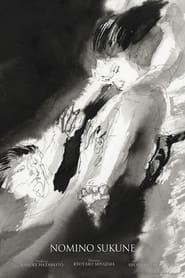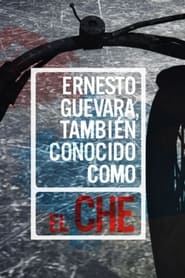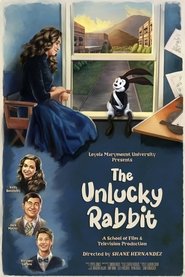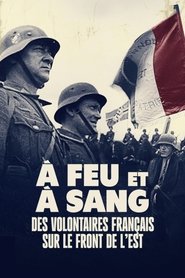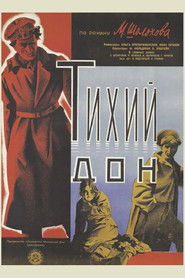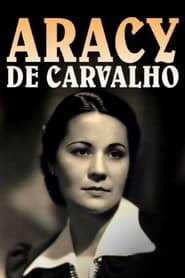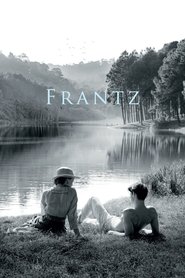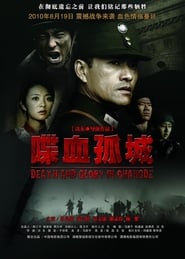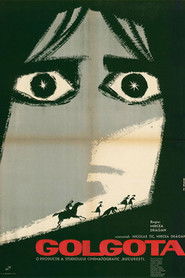Popular History Movies on Pantaflix - Page 491
-
Nefertiti: Daughter of the Sun
1994
star 3.9Tadushepa grows from a young princess from the Mitanni kingdom to the legendary Queen Nefertiti of Egypt. The film starts with the discovery of her bust by a German archaeologist in 1912 and then turns the time back to the moment just before she is married to the old Pharaoh Amanophis III. She must say goodbye to her lover, the sculptor Yame. But in Egypt she appears to have a great talent for power. After the death of Amanophis she collapses on the heir to the throne Akhematon. -
Water and Sugar – Carlo Di Palma: The Colours of Life
2017
star 5.2An account of the life and work of legendary cinematographer and director Carlo Di Palma (1925-2004) and an emotional journey through the great moments of cinema, from Italian neorealism to the masterpieces of Woody Allen. -
De Gaulle – Partie 2
0000
De Gaulle – Partie 2
0000
Part two of a two-part biopic following French army officer Charles De Gaulle's life and political commitment between 1940 and 1945, and trace his development towards a political career. -
Makkuro na Obentô
1990
Makkuro na Obentô
1990
The true story a young boy who left for his job with a lunch box his mother prepared for him the day of the atomic bombing of Hiroshima. -
NOMINO SUKUNE
2021
NOMINO SUKUNE
2021
In ancient legend, "NOMINO SUKUNE" was the creator of Japanese Sumo wrestling. He also aborted the live human sacrifices in the tombs of the emperor and made terra-cotta clay sculptures instead. -
Ernesto Guevara, also known as "Che"
2015
star 8From millions of photos, posters, videos, t-shirts, postcards, records, books, phrases, testimonies, Che watches over us. Beyond all paraphernalia, he returns. Irreverent, mocking, stubborn - morally stubborn - Che will always be the subject of debate. The exclusive teleSUR series “Ernesto Guevara, also known as 'Che'”, aims to address the figure of Ernesto Guevara as it has never been told before. Conversing with the characters who were with him in important moments, visiting the real settings where Che spent his life. -
The Unlucky Rabbit
2025
The Unlucky Rabbit
2025
A group of animators pitch The Unlucky Rabbit, a documentary exploring Walt Disney’s earliest creation, Oswald the Lucky Rabbit. Through storyboards, they retrace the 1920s from Disney’s arrival in California, to his collaboration with Ub Iwerks for the character Oswald at Universal Pictures. -
Leonardo: The Works
2019
Leonardo: The Works
2019
star 6.4Leonardo da Vinci is acclaimed as the world’s favourite artist. Many TV shows and feature films have showcased this extraordinary genius but often not examined closely enough is the most crucial element of all: his art. Leonardo’s peerless paintings and drawings will be the focus of Leonardo: The Works, as EXHIBITION ON SCREEN presents every single attributed painting, in Ultra HD quality, never seen before on the big screen. Key works include The Mona Lisa, The Last Supper, Lady with an Ermine, Ginevra de’ Benci, Madonna Litta, Virgin of the Rocks, and more than a dozen others. -
The Governor's Company of Adventurers
2011
1824 - Veteran fur trader Francois Leclair is held responsible when his important female passenger does not arrive at her York Factory destination. -
The Great Monk Seo San
1972
In 1581, the monk Seo-san predicts that the Japanese are planning an invasion of Korea. He goes to the king, suggesting that the kingdom build a stronger army, but he is thrown out of court. He begins training three pupils in martial arts, but rumors reach the king that Seo-san is training an army. The king sends his soldiers to have the monk arrested -
And Quiet Flows the Don
1931
star 4.9The first screen adaptation of an epic Russian novel about a village of Cossacks on the Don River, covering the last days of peace on the riverside before the beginning of the First World War. -
Vedaat Marathe Veer Daudale Saat
0000
It shows the inspirational story of the extraordinary bravery of seven Maratha warriors of Maratha Empire to achieve dream of Swaraj in 1674. -
Aracy: Der Engel von Hamburg
2022
star 8The Brazilian Aracy de Carvalho moves to Hamburg with her son in 1934. Despite the Nazi dictatorship, Germany is a refuge for her as a single woman. But through her work at the Brazilian consulate, Aracy is confronted with the persecution of Jews in the Third Reich. She helped countless of them to leave the country in the years before the Second World War. For the refugees and their survivors, who have their say in the film, she becomes the angel of Hamburg. The docudrama tells the story of a woman who did not want to be a hero, but who saved the lives of countless people. -
Frantz
2016
Frantz
2016
star 7.3In the aftermath of WWI, a young German who grieves the death of her fiancé in France meets a mysterious French man who visits the fiance’s grave to lay flowers. -
Death and Glory in Changde
2010
star 5.9Directed by Shen Dong and starring Ray Lui, An Yixuan and Yuan Wenkang, Death and Glory in Changde recalls one of the most cruel and controversial battles during China's War of Resistance Against Japanese Aggression (1937-45), Changde Battle, in November 1943. -
X. La mise en croix
1898
X. La mise en croix
1898
star 3.3Part 10 of Alexandre Promio's Passion Play, in which Jesus is nailed to the Cross. -
Golgotha
1966
Golgotha
1966
star 7.7Six widows demand compensation for the death of their husbands, who were killed during a worker's strike. The women are arrested and taken to the police quarters, where the authorities try to make them retract their statements, but it turns out they're not so easily intimidated.
 Netflix
Netflix
 Amazon Prime Video
Amazon Prime Video
 Apple iTunes
Apple iTunes
 Apple TV Plus
Apple TV Plus
 Disney Plus
Disney Plus
 Google Play Movies
Google Play Movies
 Paramount Plus
Paramount Plus
 Hulu
Hulu
 HBO Max
HBO Max
 YouTube
YouTube
 fuboTV
fuboTV
 Peacock
Peacock
 Peacock Premium
Peacock Premium
 Amazon Video
Amazon Video
 The Roku Channel
The Roku Channel
 AMC+
AMC+
 Kocowa
Kocowa
 Hoopla
Hoopla
 The CW
The CW
 Vudu
Vudu
 Starz
Starz
 Showtime
Showtime
 PBS
PBS
 Pantaflix
Pantaflix
 FXNow
FXNow
 Tubi TV
Tubi TV
 Kanopy
Kanopy
 Comedy Central
Comedy Central
 Crunchyroll
Crunchyroll
 Microsoft Store
Microsoft Store
 Redbox
Redbox
 Sun Nxt
Sun Nxt
 ABC
ABC
 DIRECTV
DIRECTV
 Crackle
Crackle
 Fandor
Fandor
 Plex
Plex




